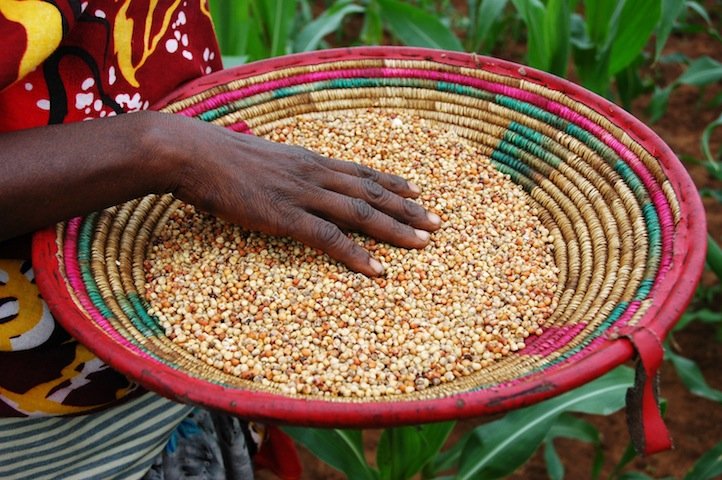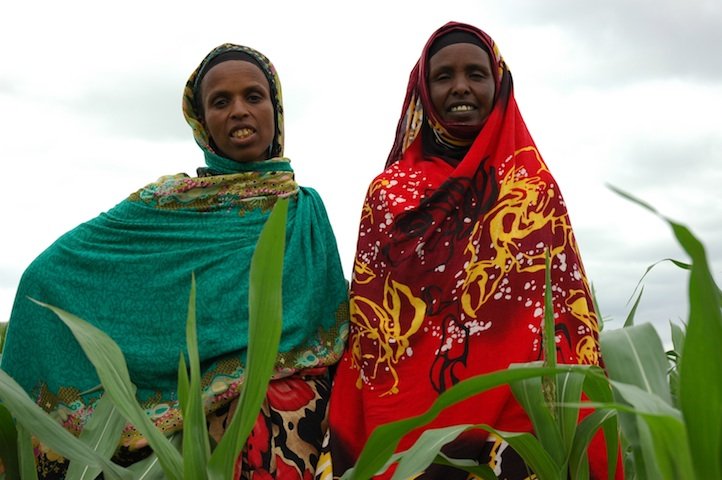Mercy Corps teams in Ethiopia, Kenya and Somalia have already helped more than 1.5 million people caught in the grip of drought and hunger. But six months after this emergency first hit international headlines, there’s still much more to do.
But because of you, we're saving more lives every day.
When drought hits and families are struggling to survive, the solutions don’t always have to be complicated or expensive. As Mercy Corps' Erin Gray learnt from our team in Ethiopia, something as simple as a sack can mean the difference between hunger and happiness for a farming family.
Our team has been helping communities in Ethiopia since the first signs of drought began more than two years ago, bringing fresh water, food, medicine and supplies to those who need them most. But where a few crops can still grow, in the Oromia Region on the edge of the dry zone, our team has also found a straightforward way to increase harvests and give families more food to go around.
When maize and sorghum crops are harvested, farmers traditionally store them in pits dug below ground. The grains are used to make injera pancakes, the staple diet for most families in this part of Ethiopia, so it’s important that they last as long as possible. But drought makes for a meager harvest to begin with, and pests, bugs and mold all take their toll, leaving up to 40 percent of the harvest ruined.
Our local staff decided to find a way to stop so much of the harvest going to waste.
They talked to farmers across the area, and together came up with a simple solution: putting the grain in plastic-coated canvas sacks before burying it in the pits. The bags are made locally, are cheap to produce and buy, and they really work. They keep out bugs and protect the grain from moisture in the surrounding soil, keeping the whole harvest as fresh as possible. Now, barely any is spoiled during storage, and farmers and their families have more to feed themselves and even sell to others so they can buy things they need when times are hard.
Halima and Meymouna Abdi, the wives of local farmers, told me how it’s making their lives easier: “We are so happy now we know what a difference using sacks to store the grain makes. We have much more food for our children and it will help us all survive times when the rains do not come and harvests are small. Our lives as mothers are easier too because our children don’t complain anymore. Before, even when we had grain to eat they would tell us that it tasted old and stale. Now our cooking tastes so much better and everyone is happy.”
It didn’t take hoards of experts in universities or science labs years to develop this breakthrough. It doesn’t cost the earth. And it doesn’t need to be shipped in from thousands of miles away. It’s a simple, elegant idea that the community can implement themselves and that will help them for years to come.
But the Crisis is Far from Over.
Unfortunately, the crisis far from over. Mercy Corps needs your help to continue to respond to the crisis and implement recovery methods. In Ethiopia, Mercy Corps' teams are rapidly responding to a dramatic drop in nutrients for children, particularly in areas hit hard by loss of livelihoods. In Kenya, people have lost everything, primarily their livestock. And in Somalia we are dealing with the conflict and the safety issues that arise when daily resources are absent.
Thank you for your support!

